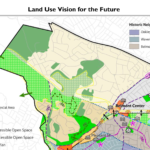
By Max Colice Over the past 10 years, the Belmont Country Club has received tax breaks totaling more than $4 million on its property tax bills thanks to a state law called Chapter 61B. Chapter 61B allows country clubs and other private nonprofit organizations to get a 75% discount on property taxes for recreational land, including golf courses. Belmont taxpayers pay for this enormous tax benefit. That’s because when one taxpayer’s bill goes down, everyone else’s bill goes up to offset that reduction. In other words, every taxpayer in Belmont has been subsidizing the Belmont Country Club’s property taxes for [READ MORE]




